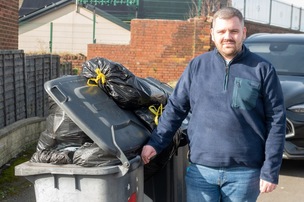A RAFT of improvements to help people with autism is set to make its way to the town following a joint scheme between the NHS and Barnsley Council.
Healthcare bosses have vowed to radically alter the provisions currently in place for autistic people and their families with improved access to education, transition to adulthood and health inequalities.
It was announced this week that a year-long project the reform local services has involved people who have lived with autism, as well as professionals who work in the field.
This included children, young people, adults, parents, carers and the people who support them, with leaders saying the feedback gained was ‘crucial’ in shaping the strategy.
Wendy Lowder, executive place director for Barnsley at NHS South Yorkshire, is also the health and adult social care boss at Barnsley Council.
She said: “Autism is a lifelong developmental condition which affects how people communicate and interact with the world.
“NHS South Yorkshire, Barnsley Council and local health and social care partners want to improve the lives of people with autism who live or work in Barnsley.
“It’s important that we continue to work in partnership with local people to understand what matters to them.
‘Hearing the voices of people with lived experience of autism and those who care for and support them will mean we can make sure our plans are right for people with autism of all ages in Barnsley.
“If you have lived experience of autism, a diagnosis, if you’re currently on or have been on an autism pathway or are a parent or carer of someone with or awaiting an autism diagnosis, then we want to hear from you to influence our local strategy development.”
Views can still be given via on online survey at southyorkshire.icb.nhs.uk/barnsleyautismstrategy.
Coun Trevor Cave, cabinet spokesperson for children’s services, added: “Thank you to everyone who has contributed their views on our draft strategy so far.
“We want Barnsley to be a place of possibilities for everyone.
“To achieve this, it’s crucial that all our residents have equal access to the public services they need to lead a healthy, safe and fulfilling life.
“This strategy aims to ensure that the needs of people with autism are understood and met across education, care and health services.
“Together with our partners, we are committed to making a meaningful difference in the lives of those with lived experience of autism in Barnsley.”
In Barnsley, £1.1m is allocated to special education needs support.
The funding covers services for visual, hearing and physical impairment, specific learning difficulties such as speech, language and communication, as well as severe learning difficulties and autism.
In total, Barnsley schools will receive a budget of £226.6m for this year.
Of this, £6.9m will go towards funding for high needs places, which provide educational support to children who cannot attend mainstream schools due to exclusion, illness, or other reasons.
Paul Whiteman, general secretary at school leaders’ union NAHT, said although the funding arrangements pre-date this government, Labour must ‘prioritise schools for investment in the months and years ahead starting with the forthcoming budget’.
He added: “Schools should be at the front of the queue when it comes to investment, which is vital to the success of the government’s mission to break down barriers to opportunity and ensure children from all backgrounds in every part of the country can thrive.”



























